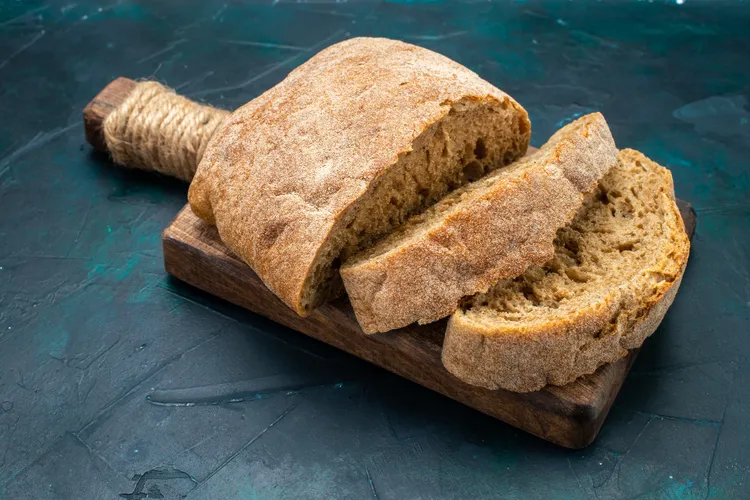Calorie Counting Is Pointless: Why It Doesn’t Work
For years, calorie counting has been hailed as the golden rule of weight loss and healthy living. The logic seems simple: eat fewer calories than you burn, and you’ll shed pounds.

The Myth of Calorie Equality
Not all calories are created equal. A 100-calorie apple doesn’t have the same effect on your body as a 100-calorie candy bar. The apple comes packed with fiber, vitamins, and minerals that keep you full and nourish your system. The candy bar? It’s mostly sugar and empty carbs that spike your blood sugar and leave you hungry an hour later. Focusing solely on calories ignores the quality of the food you’re eating, which is a massive oversight when it comes to health and weight management.
Your body isn’t a simple calculator. It’s a complex machine that processes nutrients differently based on their source. Protein, for example, takes more energy to digest than carbs or fats, meaning you net fewer usable calories from a chicken breast than a soda, even if the numbers on the label match. This is called the thermic effect of food, and it’s just one reason why obsessing over calorie totals misses the bigger picture.
Hormones Trump Calories Every Time
Weight gain or loss isn’t just about energy in versus energy out - it’s about what’s happening inside your body. Hormones like insulin, cortisol, and ghrelin play a starring role in how you store fat, feel hunger, and burn energy. Eating a diet heavy in processed foods can throw these hormones out of whack, making it harder to lose weight even if you’re sticking to a calorie limit.
Take insulin, for instance. When you eat a high-carb meal, your insulin spikes to shuttle sugar into your cells. Over time, constant spikes can lead to insulin resistance, where your body stores more fat instead of burning it - regardless of how few calories you’re eating. Counting calories won’t fix that. Balancing your meals with whole foods like vegetables, healthy fats, and lean proteins will.
The Mental Toll of Counting Every Bite
Let’s be real: calorie counting is exhausting. Logging every snack, measuring every portion, and stressing over a few extra bites can turn eating into a math problem instead of a natural, enjoyable part of life. Studies show that this hyper-focus on numbers can increase stress and even lead to disordered eating patterns.
When you’re fixated on hitting a calorie target, you’re not listening to your body’s actual signals - like hunger or fullness.
This obsession can backfire, too. Ever notice how restrictive diets often lead to bingeing? That’s because denying yourself based on arbitrary numbers creates a scarcity mindset. You’re more likely to “cheat” and overeat when the pressure becomes too much.
Ditching the calorie tracker lets you tune into what your body really needs, which is a far smarter long-term strategy.
Metabolism Isn’t a Fixed Number
Here’s another flaw in the calorie-counting game: your metabolism isn’t static. It shifts based on your activity level, sleep, stress, and even the weather. The “2000 calories a day” benchmark you see on food labels? It’s an average, not a universal truth.
If you’re cutting calories too low, your body might slow its metabolism to conserve energy, making weight loss stall. This adaptive response is why so many people hit plateaus despite sticking to their calorie goals.
Exercise throws another wrench into the equation. A hard workout might burn 300 calories, but your body could compensate by making you hungrier or less active later. Counting calories burned versus consumed assumes everything stays constant, but human biology doesn’t play by those rules.
A Better Way to Eat
So, if calorie counting is pointless, what’s the alternative? Focus on what works for your body without the calculator. Eat whole, unprocessed foods - think veggies, fruits, nuts, meats, and healthy fats. These choices naturally regulate appetite and energy levels without needing a spreadsheet.
Pay attention to how you feel after meals. Full and satisfied? You’re on the right track. Sluggish or starving? Adjust accordingly.
Some people swear by intuitive eating, where you listen to hunger and fullness cues instead of external rules.
Others find success with approaches like intermittent fasting or low-carb diets, which prioritize nutrient timing and food type over strict calorie caps. The key is finding a sustainable way to eat that doesn’t feel like punishment.
Why Calorie Counting Fails Long-Term
The stats don’t lie: most diets based on calorie restriction fail.
Why? Because counting calories isn’t a lifestyle - it’s a chore. Life gets busy, willpower fades, and the scale starts creeping back up. A system that relies on constant vigilance is doomed to crumble eventually.
Meanwhile, people who shift their focus to food quality and habits - like cooking at home or eating more protein - tend to maintain their results without the stress. It’s not about hitting a magic number; it’s about building a relationship with food that lasts.
Wrap-Up: Stop Counting, Start Living
Calorie counting might sound scientific, but it’s an oversimplified approach to a wildly complex system - your body.
It ignores food quality, hormonal balance, mental well-being, and metabolic quirks. Instead of chaining yourself to a calorie app, try eating real food, listening to your hunger, and letting go of the numbers. You’ll likely find it’s not only easier but also more effective.
So, is calorie counting pointless? For most people, yes. It’s time to ditch the myth and embrace a smarter, saner way to eat.
Latest
Summer No-Cook Recipes
13 Feb 2026
What Can I Cook With Chickpeas?
13 Feb 2026
How to Cook for One Without Wasting Food
13 Feb 2026
10 Ways to Use Fresh Herbs You Haven’t Tried Yet
12 Feb 2026
Secrets to Perfectly Crispy Roast Vegetables
11 Feb 2026
Soft Gluten-Free Pancakes with Rice Flour Only
11 Feb 2026
Why You Lose Appetite When You’re Stressed
08 Feb 2026









